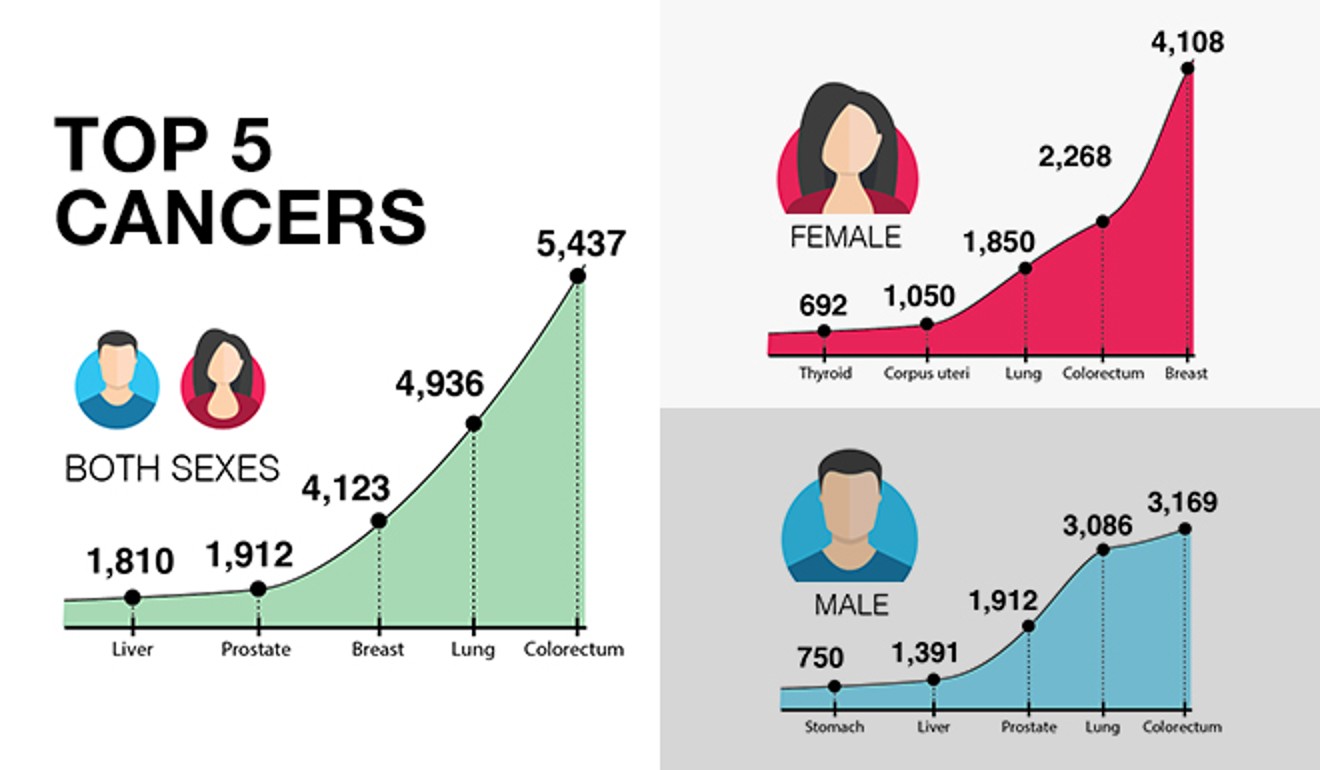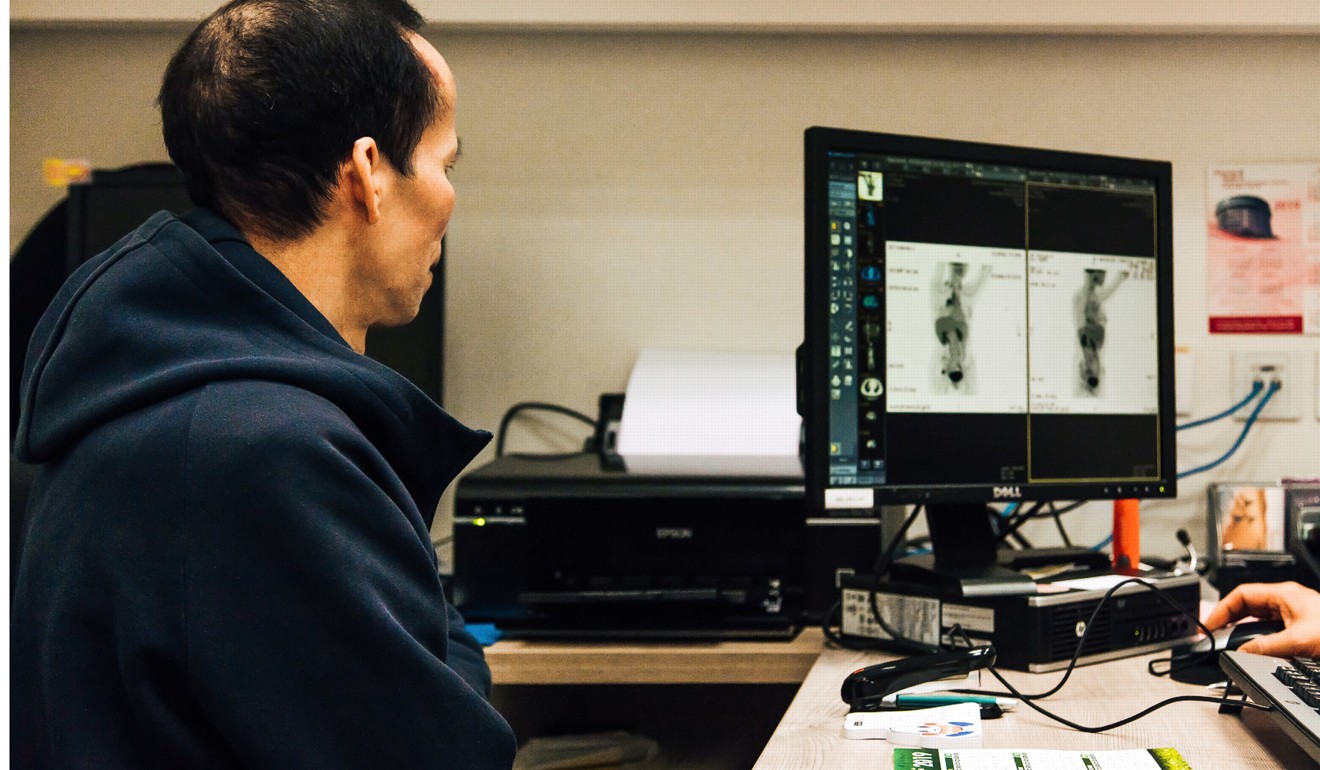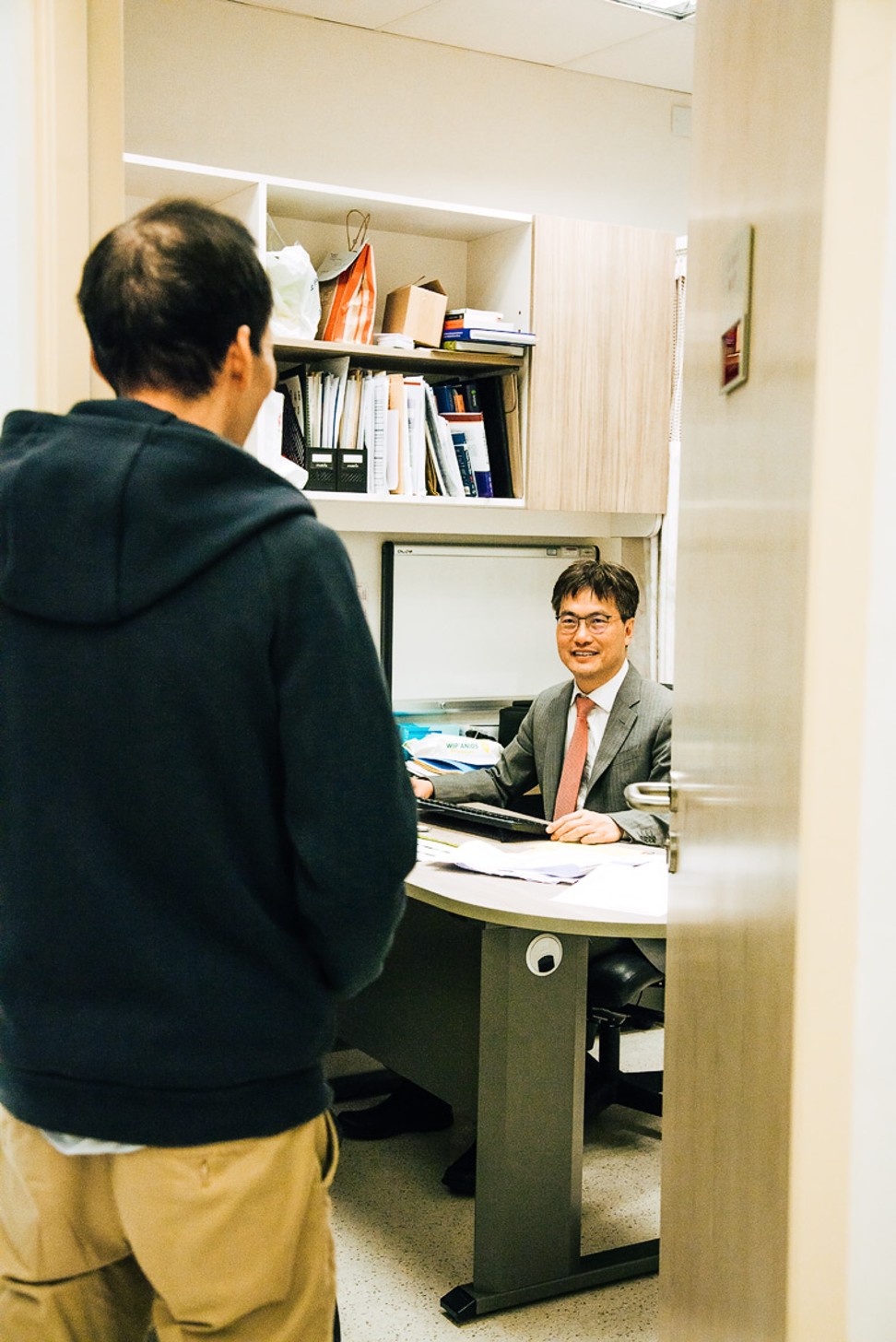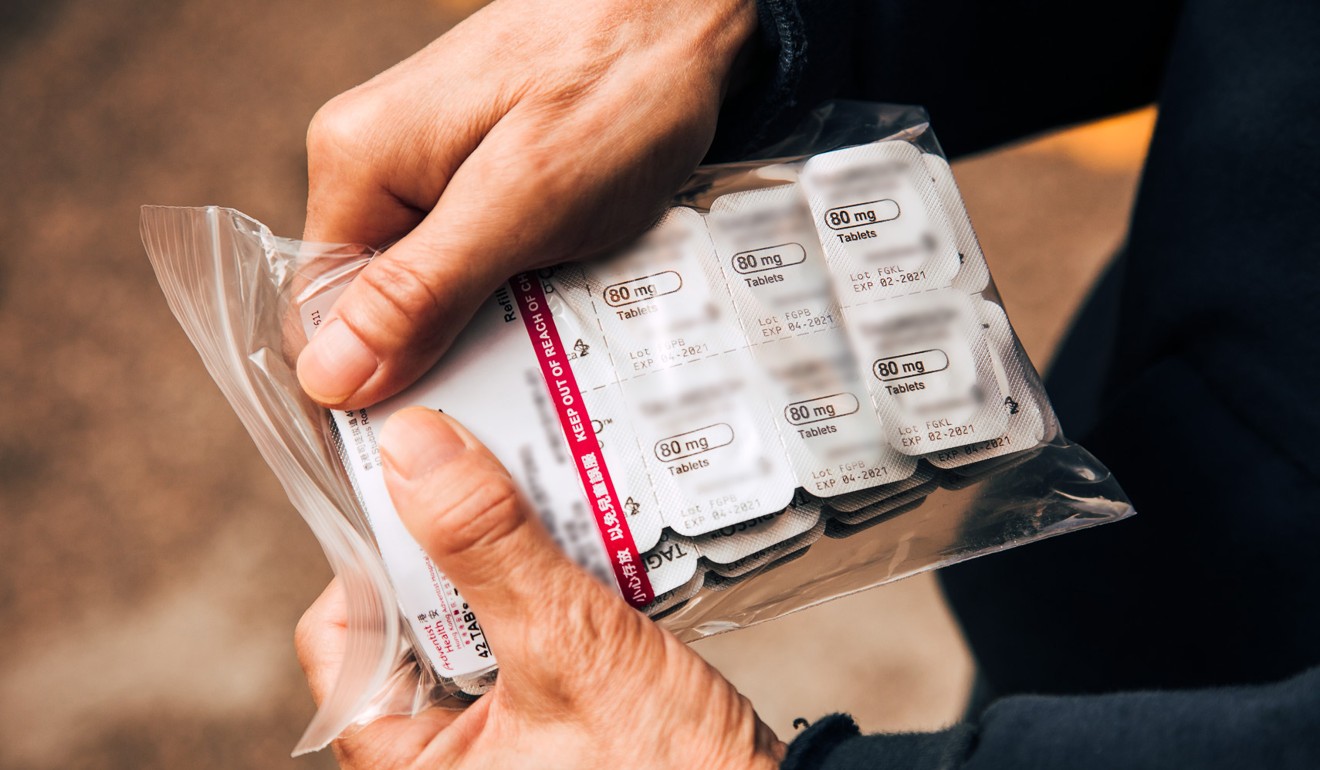
How funds for new treatment, love and support saved lung cancer patient who lost hope
- Hong Kong delivery driver who went to hospital with persistent cough, chest pain and fatigue diagnosed with Stage IV lung cancer
- Hong Kong Adventist Hospital Foundation’s Cancer Fund and doctors cover HK$50,000-a-month cost of medication

Lung cancer is the second most common cancer in men, and the third most common in women, after breast cancer and colorectal cancer.
A total of 4,936 new diagnoses were reported in Hong Kong in 2016 – accounting for 15.7 per cent of all new cancer cases, according to the Hong Kong Cancer Registry.

Advanced genetic testing and medicine has brought about targeted therapy, whereby the special genetic make-up of cancer cells can be more precisely identified and targeted with tailor-made drugs to get rid of them.
However, such genetic changes in cancers are complex and a single targeted drug can only destroy a subpopulation of cancer cells. Other cancer cells, with different genetic make-ups, will continue to grow despite continued treatment, leading to drug resistance.

That was what happened to a Hong Kong delivery driver, who asked to be identified only by his surname Tang. He was suffering from a persistent cough and constant fatigue, but thought nothing of it at first.
“There were times that I felt pain in the chest while working,” Tang, 57, says. “But I thought it was just some minor injury from lifting heavy things and didn’t take it seriously.”
A visit to a health clinic revealed nothing, but his cough persisted and he then started to suffer noticeable weight loss. After seeking other forms of treatment, including traditional Chinese medicine, which failed, he decided to visit the casualty department at the Prince of Wales Hospital in Sha Tin, in Hong Kong’s New Territories.
That was in September 2016, when he was diagnosed with Stage IV lung cancer with a genetic change known as EGFR (epidermal growth factor receptor) mutation.
The diagnosis left the stunned Tang confronting a spiral of different psychological stages that are common to people when they are told they are suffering from a deadly disease.
“When you suddenly fall seriously sick and it’s incurable, a lot goes through your mind: why is this happening to me? How could this happen?” he says.
I felt so much pain in my bones. I was so weak that I couldn’t even speak much, and my appetite was really poor
“After some time, you realise you cannot do anything about it, but accept fate. But my son and many people around me encouraged me not to give up.”
Tang, a single parent, was grateful about his teenage son making sacrifices to care for him. But the path to recovery proved to be even bumpier than expected.
Targeted therapy prescribed by Prince of Wales showed effectiveness in the beginning, but after about 18 months the cancer became resistant to the drug because of the emergence of new genetic mutations.
Tang’s condition worsened and last May the cancer spread to his bones. At some point, he lost all hope.
“I felt so much pain in my bones,” he says. “I was so weak that I couldn’t even speak much, and my appetite was really poor. I was admitted to the casualty department a couple of times because of intense pains and I felt extremely sick.
“It was the most desperate time and I did think about ending my life. But my son pleaded with me not to, because that would affect him for life.”
You realise you cannot do anything about it, but accept fate. But my son and many people around me encouraged me not to give up
Tang later went through four months of chemotherapy in the hope of avoiding the return of his cancer, but it failed to work and his condition took a sharp turn for the worse.
Without a more effective medication, Tang’s doctor estimated he had only a few months left to live.

However, people around Tang, including the medical professionals caring for him, were not giving up. Last November the Prince of Wales Hospital referred him to Dr Au Siu-kie, a clinical oncology specialist at Hong Kong Adventist Hospital – Stubbs Road, who is also chairman of Hong Kong Adventist Hospital Foundation’s Cancer Fund.
A biopsy last December showed that a secondary mutation, known as EGFR T790M, had emerged in Tang’s cancer cells.
Even when you get sick, don’t give up, and be positive. A strong mind is very important
“About 30 per cent of all lung cancer in Hong Kong contains EGFR genetic mutations,” Au says. “Financial help for those who cannot afford targeted therapy is available through the Hospital Authority. But on average, drug resistance occurs in about 10 months.”
A newer-generation therapy targeting this mutation – in the form of an oral drug – has already been developed, but currently it is completely self-financed in the public health care system.
“The drug had already been tested and proven to work with this type of cancer mutation,” Au says. “But the public health care system, being funded by taxpayers, has many other priorities and it would take time for the drug to be approved and included in the financial safety net, so that the poor can receive the treatment free.
“So even though the Hospital Authority doctors felt the drug could help Tang, they could not provide it to him due to financial reasons.”
About 30 per cent of all lung cancer in Hong Kong contains genetic mutations. [On] average, drug resistance occurs in about 10 months
From a private hospital, the drug would cost HK$50,000 per month and take an indefinite course to keep the condition in control. This was simply beyond Tang’s reach financially – particularly since, with his health severely compromised, he had not been able to work.
Tang’s son, now 20, who had put his studies on hold to care for him, also had not been able to work because he needed be close to his father to deal with all eventualities.
Yet through the help of Prince of Wales social workers, the family was able to receive social welfare aid.
Au’s team assessed Tang’s situation and family background to see if Adventist Cancer Fund would be able to provide help.
“It was a lengthy discussion in this case, as it involved quite an expensive drug and a substantial commitment,” Au says.
[We] were touched by the predicament of Mr Tang. We lobbied all parties, including the pharmaceutical companies and doctors in the public health system, so we can help
Considering Tang’s financial situation, the failure of all other available treatment options and his severity of symptoms, the new drug was his only hope.
“The members of our foundation were touched by the predicament of Mr Tang,” Au says.
“We have lobbied all parties, including the pharmaceutical companies and doctors in the public health system, so that we can join hands to help.”
The Foundation, Au says, continues to provide support to Tang with the monitoring of the disease’s progress and psychological support.

Hong Kong Adventist Hospital Foundation’s Cancer Fund has been providing timely scans and medical treatment to underprivileged cancer patients since its establishment in 2007.
Yet it is only since last year that targeted therapies have been considered for funding.
“Hong Kong Adventist Hospital Foundation (HKAHF) is always looking to expand its scope of service in order to bring hope to more patients in need,” Chairman, HKAHF’s Board of Governors (Stubbs Road) Jo Soo-Tang says.
Two months into his new treatment, Tang’s condition has improved drastically.
Most of the symptoms have disappeared, even though he still remains much weaker than before the initial diagnosis.
I’m relieved and feeling much better. I didn’t expect to recover completely; I just hoped to live a normal life again
“I’m relieved and feeling much better,” he says. “I didn’t expect to recover completely; I just hoped to live a normal life again.”
After the roller-coaster ride of the past few years, Tang now has a whole new outlook on life.
“Even when you get sick, don’t give up, and be positive. A strong mind is very important,” he says.
“I’m so grateful to Au and all the staff at Adventist Cancer Fund. They were very kind and supportive. I hope more people can get help from them and also regain hope.”